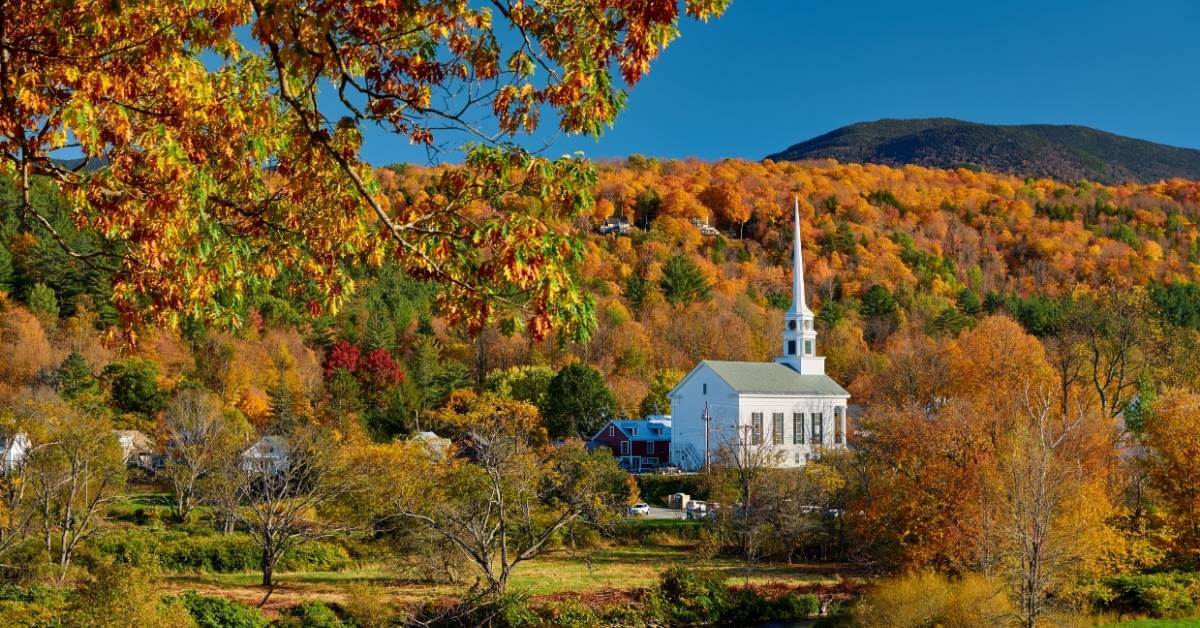Stowe, Vermont, sets fee for short-term rental registration
- Nov 12, 2024 | Jennifer Sokolowsky

Short-term rental (STR) operators in Stowe, Vermont, will have to pay $100 to register their properties with the town, according to a decision by the Stowe Selectboard. Registration is one requirement of Stowe’s STR law that goes into effect on May 1, 2025. The law was passed by the Stowe Selectboard in February 2024 and approved by voters in a referendum in May.
Under the ordinance, hosts must also:
- Designate an agent who can respond in person within 45 minutes of notification regarding any issues while the property is being rented
- Follow fire safety rules, including ensuring 24/7 access to the property for the Fire Department via a department-approved lockbox or other means
- Post contact information within the property
- Get a state food and lodging license if operators have more than three units or are serving any food other than prepackaged items
Breaking the law can lead to fines of up to $400. The town has hired a software company to identify operating STRs and to run Stowe’s STR registry.
The law defines STRs as any lease or rental of residential real property for a period of fewer than 30 consecutive days and for more than 14 days per calendar year, excluding commercial lodging establishments such as hotel, motels, inns, and bed-and-breakfasts.
Stowe STR hosts must also follow lodging tax rules
STR operators are required to register with the Vermont Department of Taxes for a Vermont Meals and Rooms Tax Account and license then collect state lodging taxes, including a 9% meals and rooms tax. STR operators are also required to collect a new 3% surcharge from guests. Surcharge funds go to the state Education Fund.
Hosts who offer their STR for rent through a marketplace (such as Airbnb or Vrbo) that has an agreement with the Vermont Department of Taxes to collect and remit tax are not required to obtain a Vermont Meals and Rooms Tax Account.
Stowe hosts must also collect the 1% local option tax, unless the taxes are filed and paid by a third party such as a marketplace. Airbnb and Vrbo collect the local option tax for their listings in Stowe. All short-term rental operators collecting the taxes themselves must post a Vermont Meals and Rooms Tax Account number on any STR advertisement.
In Vermont, all charges for the use of an STR are taxable, including fees for pets, cleaning, extra guests, and forfeited deposits. Optional services are not subject to state lodging taxes as long as the service charge is separately stated on the guest’s bill. If the host provides meals to guests and bills them separately, those meals are also subject to meals and rooms tax. If the host sells merchandise to guests, they must charge sales tax on those items.
Get help with Vermont lodging tax compliance
Avalara MyLodgeTax can help short-term rental hosts automate, streamline, and simplify lodging tax compliance. For more on lodging taxes in Vermont, see our state vacation rental tax guide. If you have tax questions related to vacation rental properties, drop us a line and we’ll get back to you with answers.











